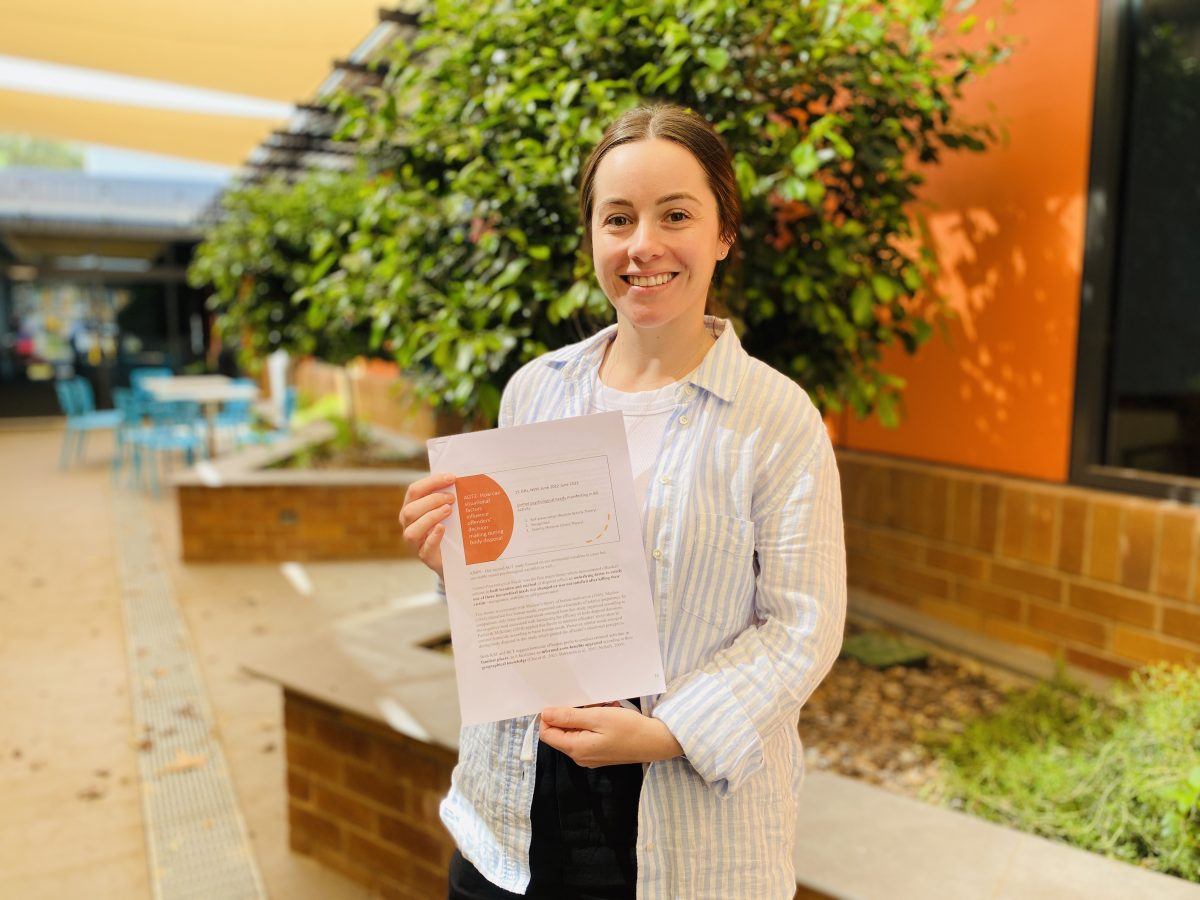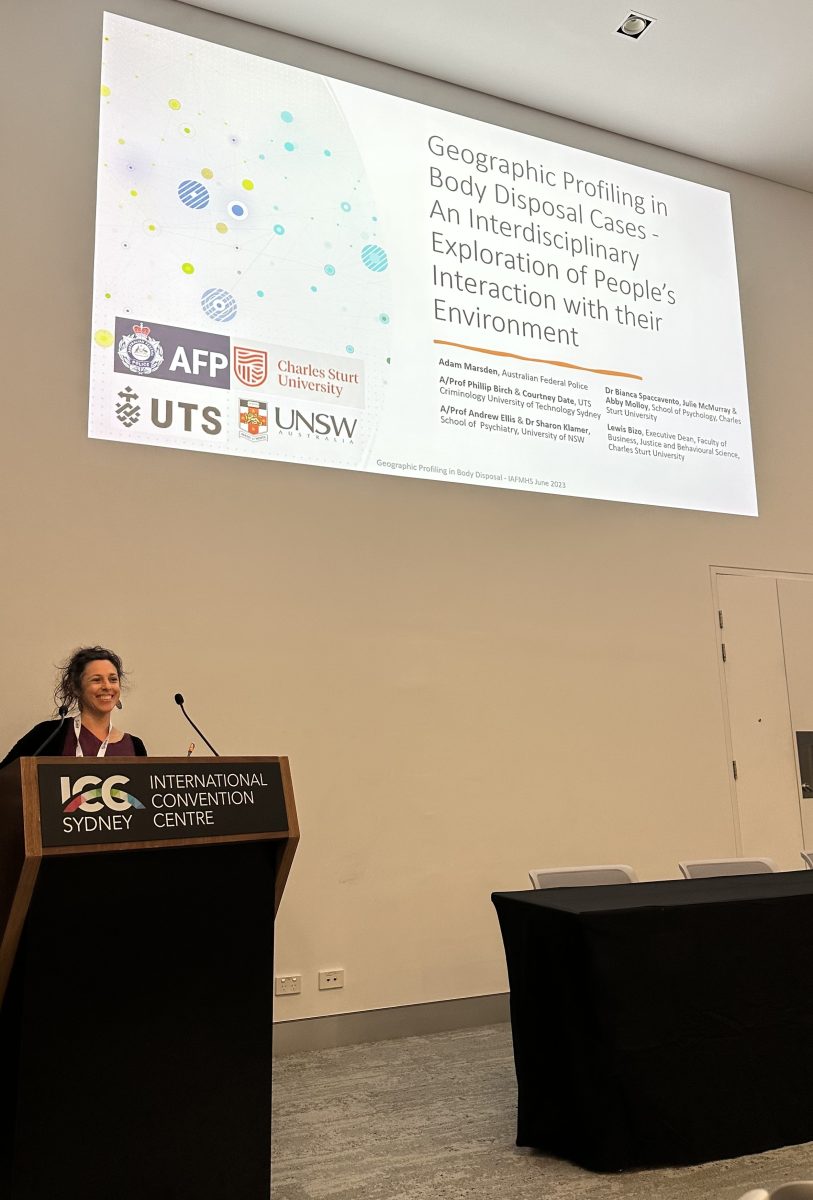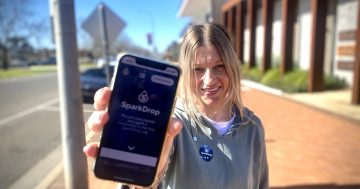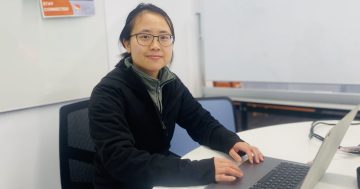
Abby Molloy’s research could make a huge difference for victims’ families. Photo: Oliver Jacques.
Warning: The following story contains language that may distress some readers.
Anyone familiar with the disappearance of Griffith politician Don Mackay or British backpacker Peter Falconio would know how traumatic it is for families who never get to have a proper send-off for their lost loved one.
Groundbreaking research by Griffith provisional psychologist Abby Molloy could make a difference for many victims’ families in an often overlooked aspect of unsolved homicide investigations.
“In murder investigations, the motive for killing someone is focused on a lot,” she said. “But the motivation for killing someone and the motivation for how to get rid of the body can be completely different.”
Killer Situations: A Grounded Theory Analysis of Homicide Body Disposal Decisions in Australia is a research paper Ms Molloy authored with Charles Sturt University (CSU) forensic psychologist Dr Bianca Spaccavento.
The aim of their study is to help authorities increase the chances of finding a body in murder investigations.
“We look at the psychological traits of the offenders … [and] try to find a pattern on what connects cases [of body disposals] and work out how that can help in future cases.”
Her analysis challenged some popular perceptions, such as the reasons why murderers may choose to dismember their victims.
“It’s in our nature to be really disgusted by somebody cutting up human body parts, we think it’s due to them being sadistic … but in many cases it could be a practical means to an end … that’s the easiest way to move and dispose of a body without anyone knowing.”
The 26-year-old said her research could be used by police and forensic scientists to help solve cold cases and to test theories with prisoners.
“This can definitely make a big difference for families of victims … it’s very distressing for people to know their loved ones are out there alone and have never been recovered,” she said.
In July 2023, she presented her findings at a major international conference.
“The International Association of Forensic Mental Services is held every year – this year it happened to be in Sydney. As part of that conference our research team presented and gave the audience a chance to ask us questions.”

Dr Bianca Spaccavento presents the research she did with Abby. Photo: Supplied.
Ms Molloy, who grew up in Myall Park, completed her tertiary studies in human services and psychology while living in Griffith.
In 2019, she became the first student to enrol at the Country Universities Centre (CUC), a learning facility that enables students to undertake degrees remotely with a local support structure in place. She will complete her CSU master’s degree in October.
“I don’t think I would have been able to get through my studies without CUC,” Ms Molloy said.
Her career goal is to improve the effectiveness of our prison system, for the sake of both those incarcerated and the rest of society.
“My dream would be to reform prisons; at present we are not really aiming for rehabilitation, it’s a holding space … nobody has chosen to be a be a drug addict or become an offender, something in their life has set them on that path … if we had more time with them and developed more rapport, something would improve,” Ms Molloy said.









